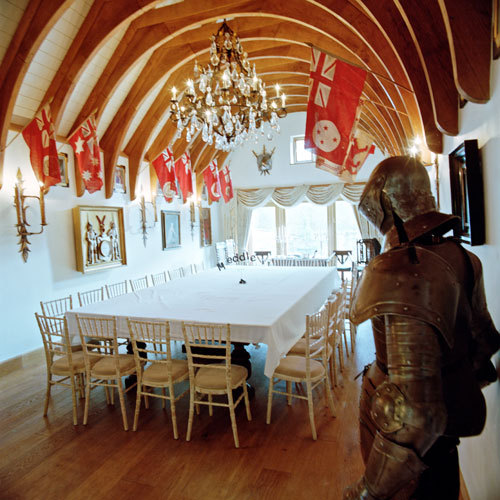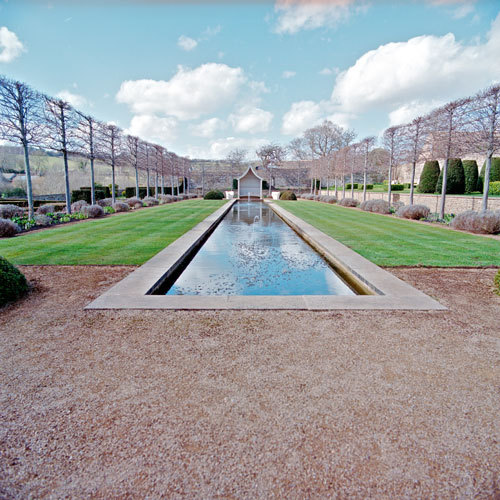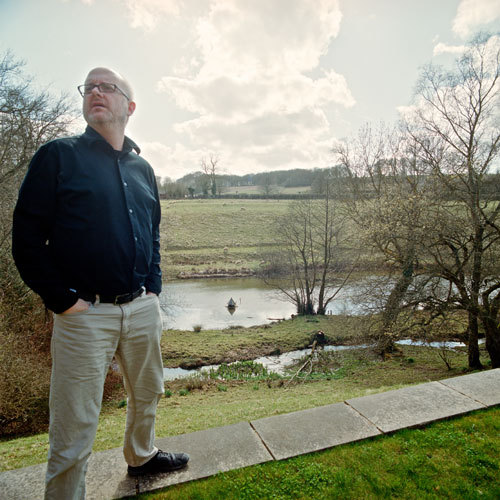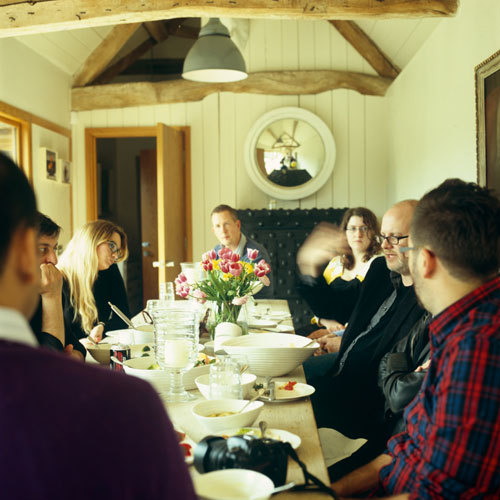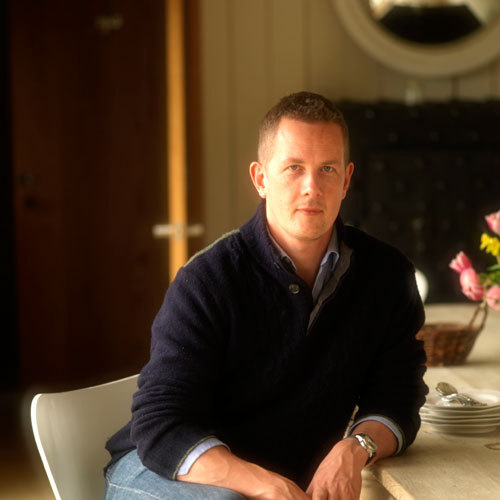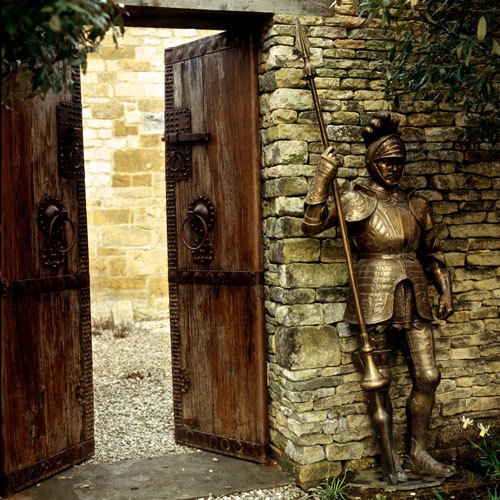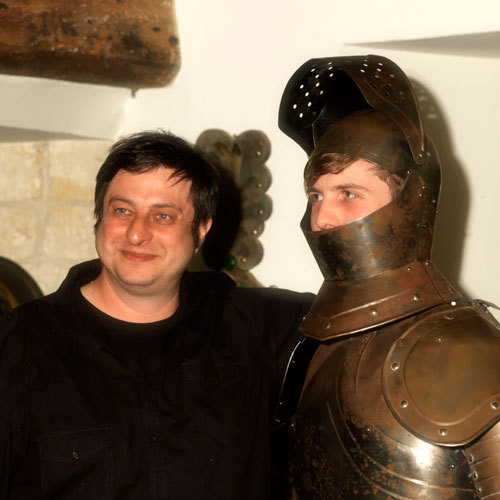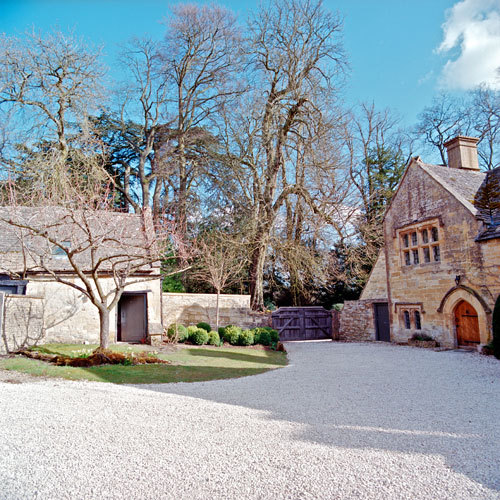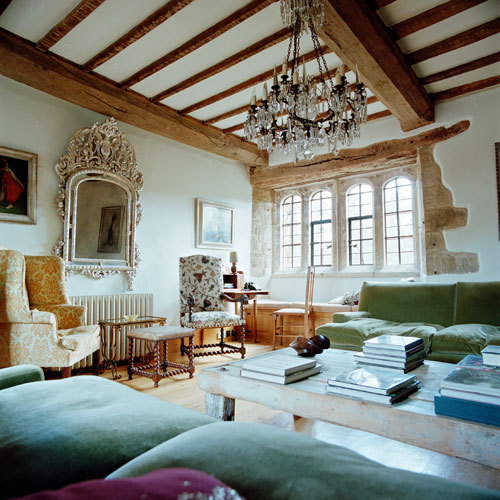How I became a meddler
A story in which a gifted connector assembled 20 notable smart people in a 14th-century English cottage for three days to figure out how to make the world a better place, one passion project at a time.
First, let me introduce the idea of a Meddle: a new approach to solving hard problems that I believe you should be excited about. You can Meddle, too — and it’s important that you do.
Excerpted from the Meddle website:
Each Meddle is a unique gathering of brilliant people, invited to come together and tackle a specific issue. The issue can be anything, in any field, on any scale.
The aim of each Meddle is to conceive, develop and present something that ‘moves the needle’ on the chosen issue. It might be a website or a white paper. It might be a product prototype or a schools roadshow.
We curate and facilitate the event. We choose a wonderful location – which could be anywhere worldwide – and handle all the logistics of travel, catering, accommodation.
We document the whole process, using our own writers, film-makers and designers. This helps us spread the word about meddling, and will hopefully inspire others to suggest new Meddles.
I was invited to participate in the first Meddle, which happened April 16-18, 2013 at Temple Guiting Manor in The Cotswolds, UK.
At first I was fuzzy on what I was signing up for:
We’re going to try to help people get their personal ‘passion projects’ off the ground.
Okay! Passion projects. That’s a little… vague, isn’t it?
Then I saw who was coming and nearly pooped my pants. (Okay, not really.)
Jessica Hische calls herself a “letterer, illustrator and crazy cat lady”. I call her one of the most important artistic talents of our generation, and a personal hero of mine. She makes letters. You might know her from her work on the credits from Moonrise Kingdom. My first exposure to Jessica’s worldview made a lasting impression:
Eugene Mirman is one of my all-time favourite comedians. Comedians of Comedy and Flight of the Conchords might have made him famous, but his over-night success took at least ten years: (jump to 9:56 if you’re in a hurry)
If you’re paying attention, an un-subtle theme is starting to emerge here: some of the most famous and interesting people alive today aren’t just advocates of passion projects; they are successful because they made their passion projects the primary focus of their lives.
“A backup plan is the first step towards failure.”
— Eugene Mirman
Anil Dash, activist, funk music expert and A-list blogger was going. Renowned designer and speaker Sarah “Sazzy” Parmenter, Deroy Peraza (creator of the circular sports bracket, The Champions Ring) and even Trevor Cain (the official dolls’ house designer for the Queen’s coronation anniversary) were all going to be there.
Of course, my life is nothing if not a long series of passion projects. I booked my flight without further hesitation.
Ted #
There wouldn’t be Meddle without Ted Pearlman, the man with an abstract plan.
Ted describes himself as a matchmaker, but I think of him as a fixer: the guy in the movie who hooks the heroes up with information, weapons and a rope.
Ted loves to connect fascinating people. Clients approach him every day for help finding needle-in-a-haystack individuals that can help them launch a company, perform a surgery, shoot a product video or find a mentor. He was born to do this.
Sometimes, Ted will decide that two people would have such amazing chemistry that he will reach out to them and send them out for dinner. That’s right: he will foot the bill for two strangers who have never met to put their brains, networks and personalities together. The participants are not obligated to do anything more than show up and be themselves, such is Ted’s true belief in the power of connections.
You really want Ted to be on your team (and he can be).
Ted’s passion project is Meddle.
He put together a diverse support and logistics team, led by Abigail Shaw and including creative director Jenny Theolin, brand designer Dan Bull, photographer Andrew Webb and videographers Aidan Hornsby and Joseph Brett. He brought Cali Riviera — a notable French chef — to make sure that we were well fed. He asked Steve Emmons and Ann Holm to help facilitate.
And yet at the end of the day, Meddle was like the physical manifestation of Ted’s ability to bring fascinating people together as though it was accelerated through the Large Hadron Collider.
Ted didn’t bring these people together because they were famous (although that helps get the word out) but because together they had an opportunity to test a hypothesis that would otherwise be very difficult to test:
“Passion projects often end up becoming successful businesses, important artistic cultural contributions and satisfying careers. If we make it easier for thousands (millions!) of people to both start and finish passion projects, can we make the world better in a literal, dramatic and repeatable way?”
Give me a lever long enough and a fulcrum on which to place it, and I shall move the world.
— Archimedes
In other words, this crazy fucker Ted brought 20 smart, multi-disciplinary design thinkers with significant networks of influence to join together like Voltron and form a giant lever on top of Meddle.
People get stuck, projects fizzle out. These are solvable problems! Can we help people get un-stuck? Can we amplify the signal loud enough to tell millions of frustrated, creatively stuck people that they are not alone?
Are passion projects the most under-valued natural resource of the Internet age?
Mike #
Making the first Meddle about passion projects was brilliant in hindsight, and the idea came from Mike Reed.
Mike is a talented and much-in-demand British copywriter who was recently foreman of the judging panel for the D&AD Writing For Design awards.
I first learned about Mike when Ted sent him on a two-week tour of the United States earlier this year. Ted arranged for Mike to meet with a few interesting people in New York, Chicago and San Francisco. Mike’s blog posts from that adventure are well-worth the read.
Ted asked Mike to be the Middle Meddler; an entirely made-up term to describe his role in the project, which was initially to suggest the theme for the first Meddle. Several years earlier, Mike had published a poem called Hippoparadox and he was interested in exploring the idea of turning it into an alphabet book for kids.
HIPPOPARADOX
I’m a hippopotamus
When I’m alone, just I.But when there’s lots of us
We are hippopotami.— Mike Reed
So, what happened? #
Meddle was awesome. Upon reflection, it was one of the most unique, surreal, frustrating, productive and hopefully influential moments of my life.
Of course, it’s easy to win when you can make your own definition of success. It’s important not to gloss over a small detail: there was no top-secret plan for how the event would work — or, if there was, it was discarded within the first hour.
Upon arrival, our first responsibility at Meddle was to figure out what a Meddle was. This was exhilarating to some and inconceivable to others.
The first day was largely consumed with people arriving from all over the world, but we did have an excellent meet-and-greet group conversation. Steve and Ann did a good job of surfacing our goals, but we quickly learned that asking 20 opinionated people a simple question can take half an hour. Lesson learned: the ideal size for a Meddle group is probably 8-12 people.
We decided that we wanted to produce something significant that would matter to people outside of the folks in the room, although there was plenty of healthy disagreement on what the scope of that output should be. Should we start something with no expectation of finishing before we leave? Was it embarrassing if this group of people couldn’t finish something? Perhaps the conversation was good enough? Maybe defining the process for running a Meddle was a great outcome? If we did do something concrete on a project, what would that project be? Was it possible that the secret sauce was in figuring out which project to start?
Challenging, right? Now, picture having that debate with 20 people that are used to being the smartest person in the room.
Late on the first night, it was clear that there would be a bloodbath unless there was a tangible plan for the next day. Several folks convened to hammer out a structure, and I went to sleep content that we were going to film a reality-television style documentary on how to launch a passion project.
We elected Mike Reed, our Middle Meddler, to provide the meat for our sausage machine. The idea was that by showing how a group of people could take an arbitrary concept and create something out of nothing in a short time in a fun and high production values way, that we could have an inspiring viral hit on our hands.
Mike was to learn about his new responsibility in the morning, at breakfast.
Come morning, we told the group our big plan before Mike stood to brief us on his poem, Hippoparadox. He wanted to offer the concept and turn it over to the crowd for no-holds-barred extrapolation brainstorming. Perhaps it could be the inspiration for a kids’ show, or a mobile memory game. Nothing was off the table.
The problem was that for this group, the idea was a lead balloon and the energy level around the table dropped precipitously. A well-intentioned but somewhat disastrous and time-hogging go-round on our individual passion projects ensued. Some people loved having the opportunity to share their ideas, but I felt a depressed anxiety because all I saw was our momentum being lost. From my perspective, of course everyone at the table had cool projects going on. That’s why we were all there. It’s cool to get some early feedback from such a smart group, but was this really the best use of our short time together?
Eventually we did return to Mike’s writing project, and we split into four groups to attack an execution plan. Again, there was no formally prescribed process for these workshops, and many people were understandably confused about what they were intended to do. We had something of an Inception scenario: depending on who you asked, we were establishing what a Meddle is, helping Mike get his project started and inspiring the masses to launch their own projects… all at the same time. Some people were thriving in their chaotic element, while others needed a stiff drink.
Tasked with establishing an execution plan for Mike’s Hippo poem, each team independently concluded that more information was required to break down the bigger project into a series of smaller tasks, and they started building massive lists of questions about the project that covered the gamut of ideation to production and marketing.
One of my mentors once told me that every business has about 100 questions to answer before its true viability and potential could be well understood. The trick is that while the answers are subjectively easy to arrive at from experience, history or experimentation, determining the right questions to ask is actually the difficult part.
It was during this process of question compilation for Mike (and other would-be passion project instigators) that the true potential of the group started to show itself. Ted had invited people with a keen intuition for asking the right questions.
By the end of the day we had a list of about 150 questions for an aspiring passion project doer. Not every question would be relevant to every project — the largest differentiator being business ambition, or an admirable lack thereof — but each question had been posed by someone a) relatively influential with b) tangible, relatable battle-tested experience getting cool shit off the napkin and into the world.
On our last night together, we stayed up late to enjoy good company and drinks by the fireplace. The mood was celebratory and I was already feeling early nostalgia for the moment. I even got interviewed by Jenny and Andrew on video about my book.
When I realized that (with the exception of Ted) I hadn’t met any of these folks in person previously, it was awesome to feel so connected to new friends. I’m so glad I got to meet people like Kathryn Rotondo and Peggy Seymour. My only regret is that I didn’t find the opportunity to shoot more portraits while I had everyone there.
Early the next morning we boarded a bus that Ted ordered at 3am during an impromptu and utterly un-repeatable Eugene Mirman performance. We drove through the English countryside, stopping for an hour in Bourton-on-the-Water to be tourists. If you’ve ever heard The Kinks’ best album, The Village Green Preservation Society, you’ve been there in your mind.
Unfortunately when we got to London it was raining cats and dogs. Our tour bus driver was a jerk and had a temper tantrum upon arrival, so after a few moments of getting soaked people quickly hailed taxis and went their separate directions.
I sheepishly told Ted that I was feeling sad that we didn’t have a chance to say a proper goodbye, and he offered to take me to everyone’s hotels for a hug. I’m pretty sure that he was at least half-serious.
“No… that would be weird, even by my standards.”
Later that night I got really nice letters from several other Meddlers expressing how wrong it felt to not have proper closure on our time together. Fact: it’s really nice to get this email from Jessica Hische when you’re feeling lonely:
I was instantly super sad that we didn’t have some major group hug / uncomfortable swaying singalong goodbye together. I will forever think of you as the owner of the most kickass shirts ever. And my new decapitated cat friend will hold a prominent place on my desk once I return to SF :)
Don’t ask about that last part.
Coda #
It’s been a month since Meddle #1, and more are in the works.
Ted sees Meddle as an open source idea; a really potent strategy for surfacing new ideas by gathering well-chosen smart people in an amazing place to let their freak flags fly high without the usual constraints of reality interfering. He hopes that others will be inspired by this story and organize their own Meddle-like events.
Of course, Ted is in the business of bringing people together — literally. I know that he’d love people with problems to approach him about planning Meddles on their behalf. You know, for money. Compared to hiring a consulting company to do, well, anything at all, I can say with confidence that a Meddle is a better use of your budget.
Seriously, though — Ted’s generosity was the focus of much attention during the event. He brought everyone together with cash out of his own pocket to see if this bizarre experiment in optimism would bear fruit. My telling of this story is a small bit of reciprocity in action, absolutely.
You are no doubt wondering what the outcome of Meddle #1 was, if any.
All of the Meddlers are still in touch, and we’re building a site that will contain the questions we compiled. Our hope is that for each question one of the participating Meddlers will record a short video clip that explains why the question is important, what the answer was for them and maybe even relate a bit of anecdotal wisdom in the process. The timeline on this project is fuzzy by necessity; we’re all back to our hectic lives, but we have faith in the potential for our stories to help many people do the thing that they do when they procrastinate for the rest of their lives.
They say only a thousand people saw The Velvet Underground perform live, but they all started bands.
Aidan is working on a Meddle video. I’ve seen the work-in-progress and it looks stellar. As soon as it’s ready for the world, I’ll post it here.
And what of the Hippoparadox? Mike emailed:
I’m immensely grateful personally for the unexpected – and invaluable – flood of ideas and thinking on my own ‘passion projects’. You guys really made me think about what I want to do, which projects I should focus on, and how best to organize myself.
I realised that, much as I love the Hippoparadox poem, and the idea of making an alphabet, it’s further down the list than, say, my screenplay and prose fiction work.
I’d love to produce and sell a gorgeous print of Hippoparadox, but do I really want to use my thin slice of ‘Passion Time’ to make a whole alphabet? … No. If I had a lot more Passion Time, then yes. But not right now.
So you’ve already helped me focus – thank you! Plus I have a lot more insight into why I’m so useless at making time for these projects – especially having spoken to Ann about my personality type (I’m INFP, those who know about these things). Thanks Ann!
At first, I was sad to hear that we’d effectively convinced Mike not to proceed with his poem project. In retrospect, this was a fabulous outcome (not for the hippos, perhaps) because we were able to demonstrate a critical truth: time is precious, and not all ideas are the best possible thing you could be doing with the time you have.
As for me, I returned to Toronto a changed man. I certainly feel a renewed excitement for my next projects, but I’m also finding myself thinking bigger in general. I ask people what they are working on, just in case there’s a way I can help. Imposter syndrome, distraction and procrastination are increasingly giving way to eminence, urgency and agency.
And that’s how I became a Meddler. I’ve never been so optimistic for the future.
You should follow me on Twitter. Support The Eugene Mirman Comedy Festival. And do consider joining Club Ted.
